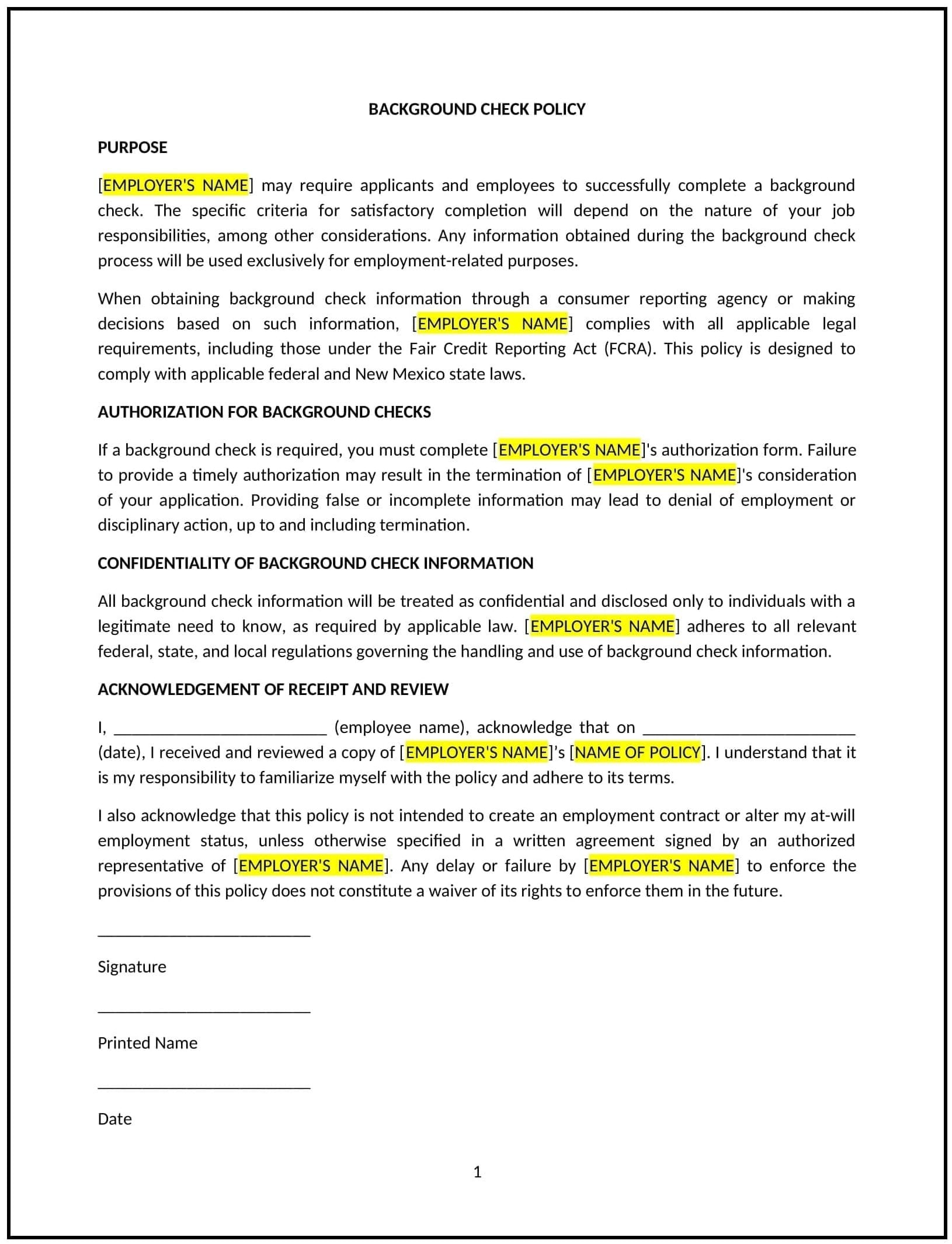Background check policy (New Mexico): Free template
Got contracts to review? While you're here for policies, let Cobrief make contract review effortless—start your free review now.

Customize this template for free
Background check policy (New Mexico)
This background check policy is designed to help New Mexico businesses make informed hiring decisions by establishing clear guidelines for conducting background checks on prospective employees. It outlines the types of background checks that may be conducted, the procedures for obtaining consent, and how the results will be handled.
By adopting this policy, New Mexico businesses can ensure a fair and consistent hiring process while protecting the business and maintaining a safe and productive workplace.
How to use this background check policy (New Mexico)
- Define the types of background checks: Clearly outline which background checks may be conducted, such as criminal history, credit reports, employment history, and education verification. Specify that only relevant checks for the position will be considered.
- Obtain consent: Ensure that the policy includes a process for obtaining written consent from applicants before conducting background checks, in line with New Mexico’s and federal regulations.
- Address legal considerations: Ensure the policy complies with relevant laws, including the New Mexico Fair Credit Reporting Act (FCRA), and guidelines regarding discrimination, as well as requirements regarding how to handle criminal records.
- Specify how background check results will be used: Clearly state that background check results will be used to assess an applicant’s qualifications, ensuring they are relevant to the position and company policies.
- Reflect New Mexico-specific considerations: Incorporate any New Mexico-specific requirements or limitations, such as rules regarding the use of criminal records or other protected information, particularly when hiring for certain roles.
Benefits of using this background check policy (New Mexico)
Implementing this policy provides New Mexico businesses with several advantages:
- Helps make informed hiring decisions: Background checks provide valuable information about candidates, helping businesses assess their suitability for the role.
- Enhances workplace safety: Ensures that employees hired are trustworthy and have the necessary qualifications, reducing risks associated with hiring individuals who may pose a threat to the business or its employees.
- Promotes fairness and consistency: Establishes a consistent process for conducting background checks, ensuring that all applicants are treated equally and decisions are based on relevant, job-related criteria.
- Reduces legal risks: By following state and federal regulations, businesses can mitigate the risk of legal claims related to discrimination, negligence, or privacy violations.
- Strengthens the company’s reputation: A transparent and consistent background check process can enhance the business’s reputation as an ethical employer, fostering trust among employees and customers.
Tips for using this background check policy (New Mexico)
- Communicate the policy clearly: Ensure that all applicants are aware of the background check policy from the beginning of the recruitment process and understand what checks will be conducted.
- Get written consent: Always obtain explicit written consent from candidates before performing background checks, in line with both New Mexico and federal regulations.
- Be transparent: Ensure that the applicant understands their rights, including how the results will be used and the potential for adverse actions based on the findings.
- Use background check results appropriately: Background check results should be considered in the context of the position and company policies. Businesses should avoid using irrelevant or outdated information when making hiring decisions.
- Review the policy regularly: Periodically review the policy to ensure it remains compliant with any changes to New Mexico state law or federal regulations regarding background checks.